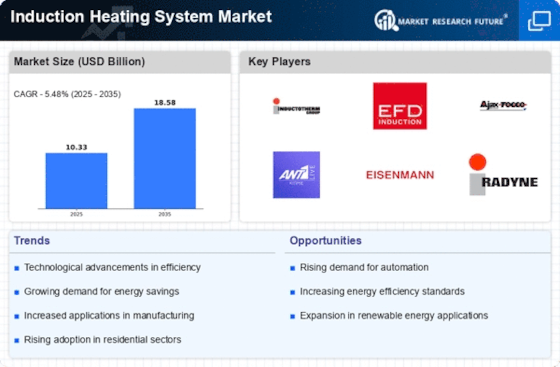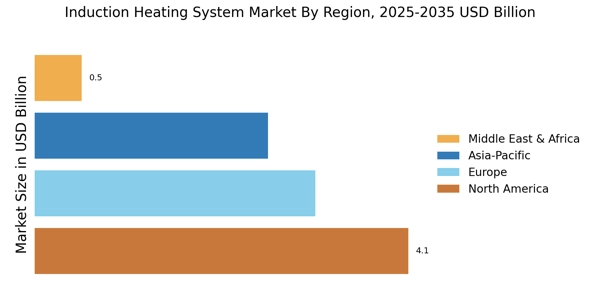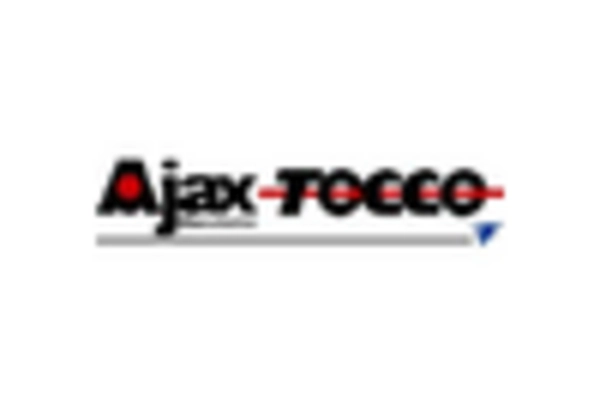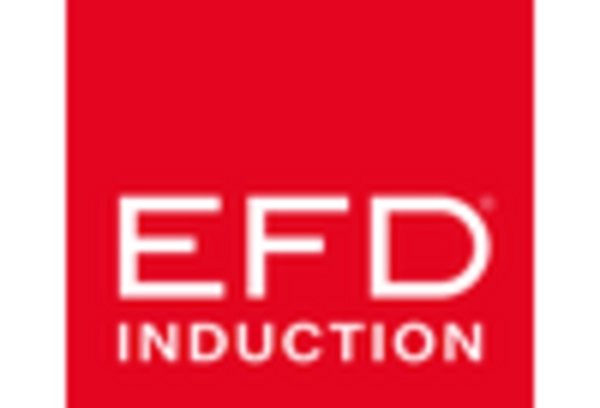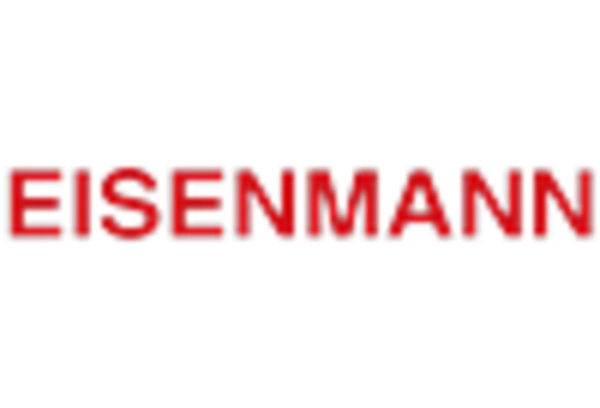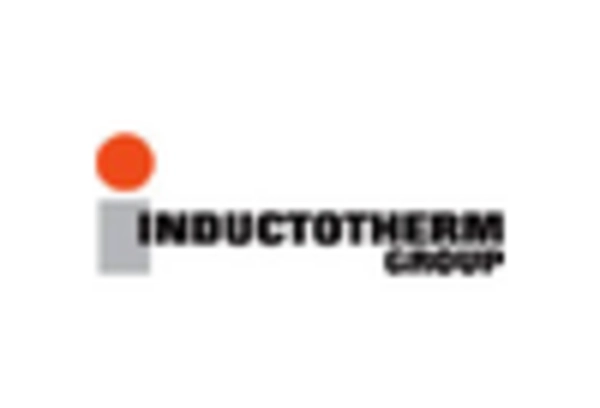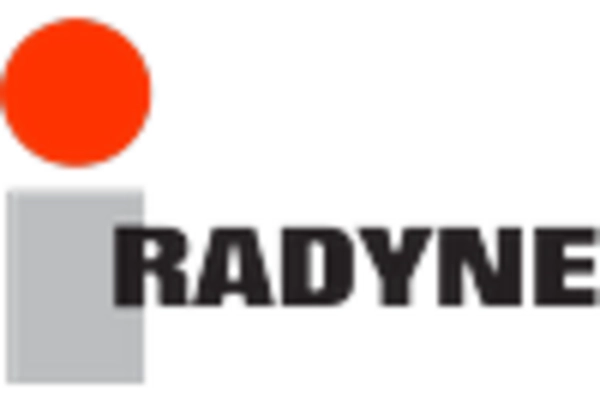Sustainability and Energy Efficiency
Sustainability is becoming a pivotal driver in the Induction Heating System Market, as industries increasingly prioritize energy-efficient solutions. Induction heating is inherently more energy-efficient compared to traditional heating methods, often achieving efficiencies of over 90%. This efficiency not only reduces operational costs but also aligns with global efforts to minimize carbon footprints. As regulatory frameworks tighten around emissions, industries are compelled to adopt cleaner technologies. The shift towards sustainable practices is expected to bolster the adoption of induction heating systems, as companies seek to enhance their environmental credentials while maintaining productivity in the Induction Heating System Market.
Growing Demand in the Automotive Sector
The automotive sector is a significant driver for the Induction Heating System Market, as manufacturers increasingly utilize induction heating for various applications, including hardening, brazing, and melting. The need for lightweight and high-strength materials in vehicle production is pushing manufacturers to adopt induction heating technologies that offer precise control and rapid heating capabilities. Recent statistics indicate that the automotive industry is expected to grow at a CAGR of 5% in the coming years, which may further stimulate the demand for induction heating systems. As automotive manufacturers strive for efficiency and performance, the Induction Heating System Market is poised to benefit from this growing trend.
Rising Adoption in Electronics Manufacturing
The electronics manufacturing sector is witnessing a rising adoption of induction heating systems, which is becoming a key driver in the Induction Heating System Market. The precision and speed of induction heating make it ideal for soldering, bonding, and other processes critical to electronics production. As the demand for smaller, more efficient electronic devices increases, manufacturers are turning to induction heating to meet these challenges. Market data suggests that the electronics sector is projected to grow at a CAGR of 6% over the next few years, which could lead to increased investments in induction heating technologies. This trend indicates a robust future for the Induction Heating System Market as it aligns with the evolving needs of electronics manufacturers.
Increased Automation in Manufacturing Processes
The trend towards increased automation in manufacturing processes is significantly influencing the Induction Heating System Market. As industries adopt automated solutions to enhance productivity and reduce labor costs, the demand for induction heating systems is likely to rise. Automated induction heating systems can operate with minimal human intervention, ensuring consistent quality and reducing the risk of errors. According to recent data, the automation market is projected to grow at a CAGR of 10% over the next five years, which could directly impact the adoption of induction heating technologies. This trend suggests a promising future for the Induction Heating System Market as manufacturers seek to integrate advanced heating solutions into their automated processes.
Technological Advancements in Induction Heating Systems
The Induction Heating System Market is experiencing rapid technological advancements that enhance efficiency and performance. Innovations such as improved power electronics and advanced control systems are enabling more precise temperature control and faster heating times. For instance, the integration of smart technologies allows for real-time monitoring and adjustments, which can lead to energy savings of up to 30%. Furthermore, the development of high-frequency induction heating systems is expanding applications in sectors like automotive and aerospace, where precision is paramount. As these technologies evolve, they are likely to drive demand within the Induction Heating System Market, as manufacturers seek to adopt cutting-edge solutions to remain competitive.


